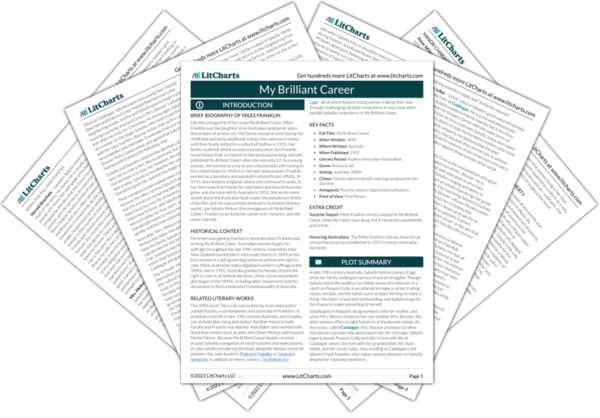Earlier, Sybylla said that she loved Harold as much as she was able to love, giving the impression that her capacity for love is limited. Now, though, Sybylla recognizes that she is very much able to love, but she doesn’t love Harold “as [she has] it in [her] to love.” She was going to marry Harold to help him through life’s suffering, but now that his suffering is over, she wants a husband who can help
her through that suffering. She believes Harold should marry someone easier to manage than she is. Her description of a “conventional” woman who “will do the things she should at the proper time” is a contrast to Sybylla’s repeated description of herself “doing “things [she] oughtn’t at the time [she] shouldn’t.”
